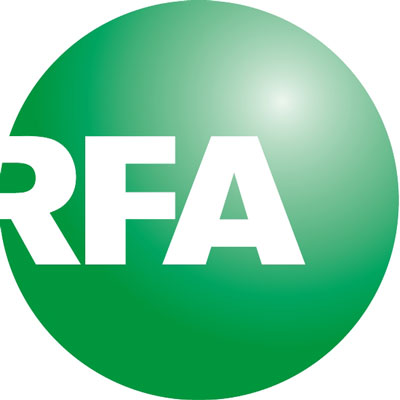
As the number of Hong Kong residents using their entitlement to British National Overseas (BNO) passports continues to rise, the city’s government has warned of “countermeasures” to stem the exodus amid a crackdown on dissent under a draconian national security law.
“The Chinese and British governments had reached a consensus on how to deal with British National Overseas passports,” Hong Kong chief executive Carrie Lam said on Tuesday, in an apparent reference to the 1984 Sino-British Joint Declaration, which agreed that the passports wouldn’t “confer right of abode in the United Kingdom.”
“If one party unilaterally deviates from this consensus, it is only natural that the other party should take some action,” she told reporters.
“We have said publicly that we will cooperate with the Central People’s Government [in Beijing] to implement the necessary countermeasures,” Lam said.
Once dismissed by many in Hong Kong as not worth the hassle of applying for, the U.K.’s British National Overseas (BNO) passport — under a recent change in immigration rules — now offers some three million Hongkongers a longer visa-free residency and a pathway to eventual citizenship.
The U.K. changed the rules in response to the Chinese Communist Party (CCP)’s imposition of a draconian National Security Law for Hong Kong banning words or deeds deemed to be secessionist, subversive, or involving terrorism or collusion with foreign powers.
The law, which was imposed by decree, bypassing the city’s Legislative Council (LegCo), criminalizes anyone holding a protest banner or speaking out against the loss of Hong Kong’s promised freedoms, anywhere in the world.
Hundreds of people lined up in Hong Kong to apply for BNO passports ahead of the 1997 handover to Chinese rule, and similar scenes were replayed ahead of the national security law.
Regina Ip, a member of Lam’s cabinet, the Executive Council, has called on Hong Kong to implement Article 9 of China’s Nationality law, which states that Hong Kong residents who voluntarily acquire foreign citizenship will automatically forfeit their Chinese citizenship.
Ip also proposed a cut-off date after which Hongkongers with foreign passports would automatically be no longer deemed Hong Kong residents or Chinese nationals.
An attempt to intimidate
Hong Kong current affairs commentator Sang Pu said Ip’s comments were an attempt to intimidate people.
“They are hoping to intimidate Hongkongers by saying these things,” Sang said.
But he said it is entirely possible that the National People’s Congress (NPC) standing committee would issue a legal “interpretation” decreeing the move.
“The national security system won’t tolerate people with foreign passports continuing to have the right of abode and voting rights beyond a certain point,” Sang said.
Historical researcher Ha Shun Kuen told RFA that the issue of BNO passport-holders was a sensitive one even three decades ago, as the U.K. considered granting right of abode to BNO passport-holders after the 1989 Tiananmen massacre.
China reacted angrily at the time, and the plan was dropped.
But the U.K. offered its lifeline again, based on the fact that China had dismissed complaints it was no longer adhering to the U.N.-registered treaty it signed governing the handover.
“China has said that the Sino-British Joint Declaration is no more than a historical document,” Ha said. “But now it’s saying that the U.K. is in breach of it.”
So I think it is not really surprising that we are seeing [these warnings] today.”
Ha said countermeasures could have the opposite effect to that intended by Beijing, however, accelerating the exodus of people from the city as one more option is closed off to them.
Forced loyalty oaths
Lam also called for members of the District Council, which is predominantly made up of opposition politicians following a landslide victory for pro-democracy candidates in November 2019 after months of pro-democracy protests in the city, to be forced to swear oaths of allegiance to Beijing, on pain of losing their seats.
Current law only requires the chief executive, principal officials, executive councillors, lawmakers, judges, and members of the judiciary to take the oath when they assume office.
However, the government has begun forcing senior civil servants to swear allegiance in recent weeks, citing a vaguely worded provision in the national security law that includes all “public officers.”
Several opposition members of the Legislative Council (LegCo) have been stripped of their seats in recent years after the NPC standing committee ruled their oaths invalid.
Dixon Sing, associate professor of social science at the University of Science and Technology, said District Councillors now face the very real threat of disqualification.
“They can say that their oaths were invalid and disqualify them, regardless of what they may do before or after taking them,” Sing said.
He said District Councils’ role in funding local entertainment, sports, and community projects also give them considerable ability to influence public opinion, something that the CCP couldn’t allow.
“For the Beijing government, which is accustomed to enjoying absolute power and never being challenged in any way, this could be threatening,” Sing said. “It is entirely possible that they will tighten the screws further [on the District Councils].”
Sham Shui Po District Councilor Li Ting-fung said the District Councils have increasingly been starved of funds that used to support civil groups, including those working against discrimination and for social justice.
“Their so-called rules basically mean they are cutting all of the funding,” Li told RFA. “They won’t approve funding applications for any activities that are [politically] not in their interest.”
“They’re denying funding, they’re not allowing us to hold meetings, and they are finding every kind of excuse to obstruct the work of councils,” Li. “District councils are no longer able to perform their original role.”
Reported by Chung Yut Yiu and Man Hoi Yan for RFA’s Cantonese Service. Translated and edited by Luisetta Mudie.